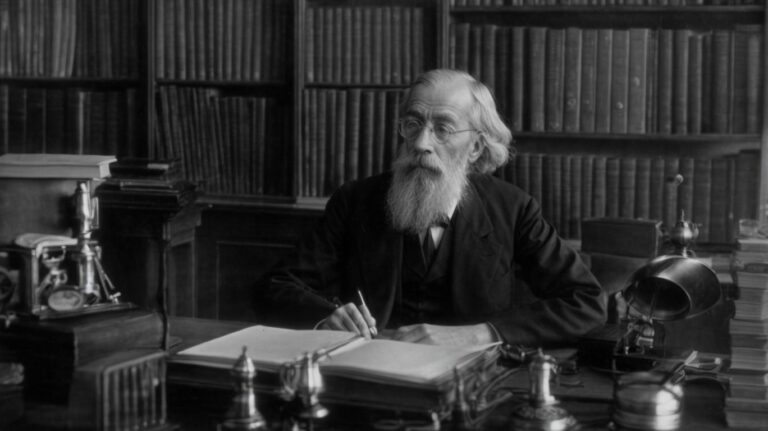Abraham Maslow, a prominent figure in the field of psychology, is best known for his groundbreaking theory on human motivation known as Maslow’s Hierarchy of Needs. This theory outlines the five levels of needs that drive human behavior, from basic physiological needs to the pursuit of self-actualization. Maslow’s work has not only shaped modern psychology but has also influenced management, leadership, therapy, and counseling practices.
Despite its widespread acclaim, Maslow’s theory has faced criticism over the years. In this article, we will explore Maslow’s legacy in psychology, the key concepts of his theory, its applications in various fields, criticisms it has faced, and how it has evolved over time. We will also delve into real-life examples of Maslow’s theory in action, offering a comprehensive look at the lasting impact of his work.
2. Maslow’s contributions to psychology include defining self-actualization, influencing management and leadership, and leaving a lasting legacy in modern psychology.
3. While Maslow’s theory has received criticism, it continues to be applied in therapy and counseling, and has influenced various fields such as education and marketing.
Contents
- 1 Who is Abraham Maslow?
- 2 What is Maslow’s Hierarchy of Needs?
- 3 How did Maslow’s Theory of Human Motivation Influence Psychology?
- 4 What is Self-Actualization and How did Maslow Define It?
- 5 How did Maslow’s Theory Influence Management and Leadership?
- 6 What is Maslow’s Legacy in Modern Psychology?
- 7 What are Some Criticisms of Maslow’s Theory Today?
- 8 How has Maslow’s Theory Evolved Over Time?
- 9 What are Some Examples of Maslow’s Theory in Action?
- 10 Frequently Asked Questions
- 10.1 What are Maslow’s Contributions to Psychology?
- 10.2 How did Maslow’s work impact the field of Psychology?
- 10.3 What is Maslow’s Hierarchy of Needs?
- 10.4 How did Maslow define self-actualization?
- 10.5 What is Maslow’s legacy of influence in modern psychology?
- 10.6 How did Maslow’s contributions to psychology change the way we view human behavior?
Who is Abraham Maslow?
Abraham Maslow, a prominent figure in the field of psychology, is best known for his contributions to humanistic psychology and the development of the hierarchy of needs theory.
Throughout his illustrious career, Maslow delved deeply into the understanding of human behavior and motivation, revolutionizing the way psychologists approached the study of individuals. His academic journey was marked by a keen interest in the subjective experiences and self-actualization of individuals, leading him to develop the concept of self-actualization, which later became a key component of his renowned hierarchy of needs theory.
His groundbreaking research shifted the focus from pathology and the negative aspects of human behavior to emphasizing the positive aspects of human psychology, thereby influencing a paradigm shift in mainstream psychology. Maslow’s work paved the way for a more holistic approach to understanding human needs and aspirations, highlighting the importance of psychological growth and self-fulfillment.
What is Maslow’s Hierarchy of Needs?
Maslow’s Hierarchy of Needs is a foundational theory in psychology that outlines a hierarchical model of human motivation and development, emphasizing the progression from basic physiological needs to self-actualization and peak experiences.
At the base of the hierarchy are the physiological needs, including food, water, shelter, and sleep, which are essential for survival. Once these needs are met, individuals move up to the safety needs level, seeking security, stability, and protection.
Following safety needs, the third level is social belongingness and love needs, where the focus shifts to forming relationships, seeking acceptance, and feeling a sense of connection.
Further up is the esteem needs level, which involves gaining recognition, respect, and self-worth from oneself and others, contributing to feelings of accomplishment and confidence.
The highest level in the hierarchy is self-actualization, where individuals strive to reach their full potential, pursuing personal growth, creativity, and fulfillment in life.
What are the Five Levels of Maslow’s Hierarchy?
Maslow’s Hierarchy of Needs consists of five levels: physiological needs, safety needs, love and belongingness, esteem, and self-actualization, each representing a crucial aspect of human development and well-being.
Beginning with physiological needs, this fundamental level encompasses biological requirements such as food, water, shelter, and sleep. Without fulfillment of these basic needs, higher levels of the hierarchy become nearly impossible to attain. Once physiological needs are met, an individual can move to the safety needs level, which includes security, stability, and protection. Feeling safe in one’s environment is vital for mental and emotional well-being. For more information on Maslow’s contributions to psychology and his legacy of influence, you can visit this external link.
The third level, love and belongingness, involves forming relationships, friendships, and connections with others. This sense of emotional health brings joy, support, and a sense of community. Moving on to the fourth level of esteem, individuals seek recognition, respect, and a sense of accomplishment. Esteem needs revolve around feeling confident and valued by oneself and others.
The pinnacle of Maslow’s hierarchy is self-actualization, which focuses on personal growth, reaching one’s full potential, and pursuing individual goals and aspirations. Human potential becomes fully realized at this level, where creativity, authenticity, and a sense of purpose flourish. Achieving self-actualization often leads to a deep sense of satisfaction and fulfillment in life.
How did Maslow’s Theory of Human Motivation Influence Psychology?
Maslow’s theory of human motivation significantly impacted the field of psychology by introducing a positive perspective on human behavior and emphasizing self-actualization and well-being.
Abraham Maslow’s hierarchy of needs suggests that individuals progress through a series of stages to achieve self-fulfillment, indicating a journey from fulfilling basic physiological needs to higher-level psychological needs.
Self-actualization, the pinnacle of Maslow’s pyramid, represents the quest for personal growth, creativity, and reaching one’s full potential.
This theory has influenced the development of Positive Psychology, a branch that focuses on strengths, virtues, and optimal human functioning, shifting the focus from pathology to well-being.
Empirical studies have supported Maslow’s ideas, showing that when basic needs are met, individuals are more likely to strive for higher-order needs, leading to enhanced overall life satisfaction and happiness.
What are the Key Concepts of Maslow’s Theory?
The key concepts of Maslow’s theory revolve around self-actualization, peak experiences, human motivation, and the role of personality in achieving fulfillment and happiness.
Self-actualization, as described by Maslow, represents the pinnacle of human potential, where individuals strive to realize their true abilities and reach a state of personal growth and fulfillment. This concept emphasizes the importance of pursuing one’s unique talents, creativity, and potential to lead a meaningful life. Peak experiences, on the other hand, are profound moments of joy, happiness, and interconnectedness that contribute to a sense of purpose and self-fulfillment.
Human motivation, according to Maslow, is hierarchical, with basic needs such as physiological, safety, love, and esteem forming the foundation before individuals can pursue self-actualization. Understanding these motivational factors helps in comprehending human behavior and driving personal development.
Personality traits play a crucial role in the journey towards self-actualization, with characteristics like openness, conscientiousness, extraversion, agreeableness, and emotional stability influencing one’s ability to strive for personal growth and fulfillment. Maslow’s theory offers valuable insights on the complexities of human nature and the quest for self-realization.
How was Maslow’s Theory Criticized?
Despite its acclaim, Maslow’s theory has faced criticism for its perceived focus on high-achieving individuals, neglect of dysfunction and pathology, and potential for overlooking emotional damage in human experiences.
Some critics argue that Maslow’s hierarchy of needs overly idealizes individuals, presenting a distorted view that does not fully account for the complexities of the human psyche.
This hierarchy tends to prioritize self-actualization, often overlooking the struggles faced by individuals dealing with various psychological challenges.
The theory’s emphasis on personal growth and positive attributes has been recognized as lacking consideration for those experiencing mental health issues, trauma, or difficult life circumstances.
What is Self-Actualization and How did Maslow Define It?
Self-actualization, as defined by Maslow, represents the realization of one’s full potential, leading to personal fulfillment, actualization of talents, and the pursuit of greatness.
When individuals reach the state of self-actualization, they exhibit characteristics such as creativity, authenticity, and a deep sense of purpose. Maslow believed that this level of personal growth goes beyond fulfilling basic needs and delves into the realm of maximizing one’s unique talents and abilities.
Implications of self-actualization extend to society as well, as individuals who achieve this state contribute positively to their communities, inspiring others to strive for their own greatness. The journey towards self-actualization involves introspection, self-awareness, and continuous growth, allowing individuals to transcend limitations and reach new heights of personal development.
How did Maslow’s Theory Influence Management and Leadership?
Maslow’s theory of human motivation has significantly influenced management and leadership practices, emphasizing the importance of recognizing employee needs, fostering creativity, and promoting personal growth within organizational settings.
By understanding Maslow’s hierarchy of needs, leaders can structure work environments to fulfill these fundamental human requirements. This, in turn, can lead to higher levels of motivation, job satisfaction, and productivity among employees.
- Self-actualization, a key concept in Maslow’s theory, encourages individuals to reach their full potential, pushing them to seek growth opportunities and innovation within the workplace.
In educational settings, applying Maslow’s theory enables educators to create supportive learning environments that cater to students’ diverse needs and facilitate optimal learning experiences.
What is Maslow’s Legacy in Modern Psychology?
Maslow’s legacy in modern psychology encompasses his theory’s application in therapy and counseling, the promotion of flourishing and well-being, and the recognition of his contributions in mainstream magazines.
Abraham Maslow, a pivotal figure in the field of psychology, revolutionized therapeutic practices by introducing his hierarchy of needs framework, which has become a cornerstone of modern counseling techniques. His emphasis on self-actualization and the pursuit of intrinsic motivation has reshaped the way therapists approach their clients, moving towards a more holistic and humanistic approach.
Maslow’s dedication to individual growth and fulfillment has paved the way for the incorporation of positive psychology principles into therapy, focusing not just on rectifying deficits but also on nurturing strengths and potentials.
His ideas have not only influenced the therapeutic realm but have also transcended academic circles, making their way into mainstream publications. Maslow’s work continues to inspire psychologists and individuals alike to strive for a life of meaning, purpose, and self-actualization.
How is Maslow’s Theory Applied in Therapy and Counseling?
Maslow’s theory finds practical application in therapy and counseling through its emphasis on self-acceptance, human potential, and the promotion of positive attributes for individual transformation.
When individuals embark on a journey of self-exploration within the therapeutic setting, Maslow’s framework serves as a guiding light, helping them embrace their true selves and acknowledge their inherent worthiness.
Self-acceptance paves the way for profound emotional healing and personal growth, enabling individuals to confront their inner obstacles with courage and compassion.
By recognizing and nurturing their human potential, clients gain the confidence to pursue their aspirations and flourish in various aspects of their lives.
This acknowledgment of potential fuels a sense of purpose and drives the development of positive attributes, such as resilience, empathy, and self-awareness, essential for navigating the complexities of personal transformation and fostering meaningful connections with others.
What Other Fields Have Been Influenced by Maslow’s Theory?
Apart from psychology, Maslow’s theory has influenced various fields such as education, research, and student development, highlighting its impact on unlocking human potential and fostering growth.
In the realm of education, Maslow’s theory has been integral in shaping curriculum design and classroom practices to cater to students’ holistic needs. Educators have incorporated the concept of self-actualization and hierarchy of needs into their teaching methodologies, aiming to create supportive environments that facilitate personal growth and academic success.
What are Some Criticisms of Maslow’s Theory Today?
In contemporary discourse, Maslow’s theory faces criticisms for its perceived focus on positive aspects, neglect of dysfunction, and potential oversimplification of human experiences, as highlighted in mainstream magazines and scholarly debates.
Some critics argue that Maslow’s theory propels an overly optimistic view of human nature, suggesting that placing ultimate importance on self-actualization may not resonate with everyone in reality. They contend that the theory’s emphasis on positive attributes overshadows the complexities of human behavior and mental health issues.
Skeptics raise concerns about Maslow’s approach seemingly overlooking the significance of addressing dysfunction and negative experiences in personal growth. They point out that a one-size-fits-all approach may not adequately cater to individuals struggling with trauma or emotional difficulties.
How has Maslow’s Theory Evolved Over Time?
Maslow’s theory has undergone evolution over time, incorporating empirical evidence, engaging academic psychologists, and adapting to contemporary interpretations of human motivation and well-being.
This renowned theory, proposed by Abraham Maslow in the mid-20th century, has been refined and expanded through years of research and scholarly discourse. Maslow’s hierarchy of needs, a pivotal concept in the theory, highlights the progression of human needs from basic physiological requirements to higher-level psychological desires.
Academic psychologists have played a crucial role in the advancement of Maslow’s theory, conducting studies to validate its principles and exploring its relevance in diverse cultural contexts. Researchers have examined how self-actualization, a key component of the theory, manifests in individuals across different societies and demographics.
Today, Maslow’s theory continues to resonate in various fields, influencing positive psychology, organizational behavior, and personal development strategies. Its emphasis on self-fulfillment and the pursuit of potential has shaped contemporary viewpoints on human motivation and well-being, fostering a greater understanding of human behavior and aspirations.
What are Some Examples of Maslow’s Theory in Action?
Maslow’s theory manifests in various real-world examples, showcasing instances of resilience, happiness, and well-being that align with the principles of human motivation and self-actualization.
One poignant example of Maslow’s theory in action can be observed in individuals who have overcome significant challenges in life, such as survivors of natural disasters. These individuals often demonstrate profound resilience, drawing on their inner strength and determination to rebuild their lives after facing adversity. By focusing on their basic needs and safety first, they gradually progress towards higher levels of fulfillment and self-actualization.
In everyday life, the pursuit of happiness and well-being can also be seen through simple acts of kindness and gratitude. When individuals prioritize positive relationships, personal growth, and meaningful experiences, they enhance their overall satisfaction and contentment, resonating with Maslow’s emphasis on psychological growth and fulfillment.
Frequently Asked Questions
What are Maslow’s Contributions to Psychology?
Maslow’s Contributions to Psychology refer to the pioneering work of Abraham Maslow in the field of humanistic psychology. He is best known for his theory of human motivation, the hierarchy of needs, and his emphasis on the importance of self-actualization in the pursuit of personal growth and fulfillment.
How did Maslow’s work impact the field of Psychology?
Maslow’s work had a significant impact on the field of psychology, particularly in the way it shifted the focus from studying mental illness to understanding human potential and personal growth. His contributions also played a crucial role in the development of positive psychology, which focuses on promoting well-being and personal flourishing.
What is Maslow’s Hierarchy of Needs?
Maslow’s Hierarchy of Needs is a theoretical framework that outlines the five basic human needs that must be met in order for an individual to reach their full potential and achieve self-actualization. These needs include physiological needs, safety needs, love and belongingness needs, esteem needs, and self-actualization needs.
How did Maslow define self-actualization?
Maslow defined self-actualization as the ultimate goal of personal growth and fulfillment, which involves realizing one’s full potential and achieving a sense of purpose and meaning in life. According to Maslow, self-actualization is a continuous process that requires individuals to constantly strive for personal growth and to reach their full potential.
What is Maslow’s legacy of influence in modern psychology?
Maslow’s legacy of influence in modern psychology is still evident today, with his theories and ideas continuing to shape the field. His work has influenced various areas of psychology, including humanistic psychology, positive psychology, and the study of motivation and personal growth. His ideas have also had a significant impact on other disciplines, such as education, management, and counseling.
How did Maslow’s contributions to psychology change the way we view human behavior?
Maslow’s contributions to psychology challenged the traditional views of human behavior, which focused primarily on pathology and dysfunction. He emphasized the importance of understanding and promoting positive aspects of human behavior, such as personal growth, self-actualization, and the pursuit of happiness. This shift in perspective has had a lasting impact on the way we understand and approach human behavior today.



